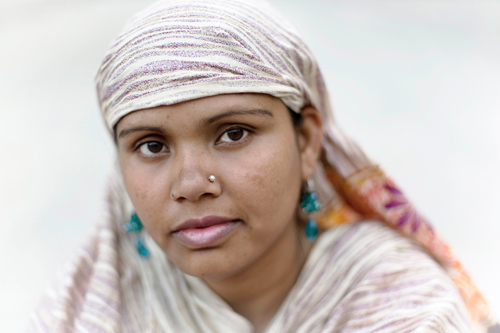As I learn about all the ways women around the globe are oppressed, exploited and abused, I can’t help but wonder what is wrong with humanity and how do we stop it? One key step, at least where Christianity has influence, is looking at how Jesus treated and taught about women in the Gospels, according to author Elaine Storkey. You can already tell she’s singing my song, right?

I started Storkey’s book Scars Across Humanity nearly a year ago but put it down for a while during the busy season for our bed and breakfast. Only recently did I pick it up again and finish it, and I am so glad I did.
Storkey aims to help readers understand the scope of violence against women occurring across the globe and consider underlying factors and ways to overcome them. The understanding part was difficult for me. Her eight chapters documenting abusive practices and atrocities against women are hard on the heart. She looks across the world’s cultures and societies – reporting on female-specific abortion and infanticide, female genital mutilation, so-called honour killings, intimate partner violence, rape, sexual abuse, trafficking and prostitution. And it’s all happening right now. In the 21st century.
It’s a grueling read, and I confess that I did some light skimming through many sections, unable to make myself fully concentrate on the painful stories and statistics.
“Why is this happening?” I asked myself over and over as I read. Storkey, a philosopher, sociologist and theologian, explores several traditional explanations for this evil proposed by scientists across a variety of disciplines. She follows, then, with a closer look at the specific cultural phenomenon of patriarchy and its relationship to power and control.
Religion’s role – specifically Islam and Christianity – is where Storkey turns next in her search for understanding. As a Christian herself, she is unflinching in laying our part of the blame where it belongs. She addresses the teaching of church authorities, both Catholic and Protestant/Evangelical – and contrasts it with the actual teaching of the Bible. Sadly, these two authorities have often been at odds.
Storkey points out that from the earliest days of the church, the writings of the men known as the “church fathers” revealed “that their gender attitudes owed more to pagan Greek philosophy than the Christian gospel.” She makes her point with examples that include this one from St. Clement of Alexandria (who lived a. 150-c. 215):
“Every woman should be filled with shame at the thought that she is a woman … the consciousness of their own name must evoke feelings of shame.”
Modern day examples of churches telling victims of spousal abuse to be more submissive or pray more or be more forgiving bring us into contemporary Christianity. We have too often failed to protect women from harm, let alone allowed them equality in the church.
I particularly found hope in her section looking more closely at what scripture actually says about women – both the Old and New Testaments. She concludes that nothing in the Bible “affirms women’s subservience or, even remotely, validates gender violence. It repudiates it and urges a far better way of living.
She follows the Bible in locating the problem at a far deeper level than biology or culture. Even patriarchal structures are the project of human choice, she says. “A Christian theology of sin places accountability for attitudes, culture and actions firmly on human shoulders; we have to own what we create.”

She reminds us, though, that Jesus faces “the injustices of the world, the brutality of the human race, and dies for sin.” Redemptive living made possible by Jesus brings repentance and transformation, which should also affect gender relationships as it does everything else.
Here is where Storkey turns to the Gospel stories of Jesus as he cuts “open cultural norms, hierarchies, stereotypes, and the low status of women.” In a page, she summarizes all the ways Jesus illustrated women’s equal significance before God – as he saw them, healed them, listened to them, admired them, and enjoyed their friendship. “It is not surprising that through the centuries,” Storkey says, “women have found their own identity and significance in following Christ.”
Focusing on and then following the example of Jesus can go a long way toward righting many wrongs against women among those who claim to be his disciples. It doesn’t immediately fix the problem in parts of the world where Christianity is not the predominant religion, but Storkey sees hope here too. She ends by listing inroads being made by Christian outreach in countries all over the globe, places where compassionate care and healing are shining the light of Jesus into darkness. Her work is a wonderful affirmation that far from condoning or perpetuating violence against women, “the Christian faith offers a biblical framework for understanding it and the power of God’s love to combat it.”
Scars Across Humanity: Understanding and Overcoming Violence Against Women
Elaine Storkey
Publisher: Society for Promoting Christian Knowledge
Photo by Nicola Fioravanti on Unsplash

Leave a Reply
You must be logged in to post a comment.